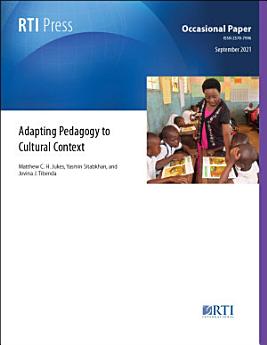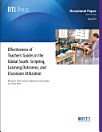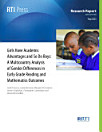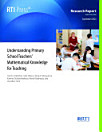Adapting pedagogy to cultural context
About this ebook
About the author
Senior Program Specialist
Education
MA, Educational Administration, Ohio University
Bachelor of Science in Education, University of Dar es Salaam, Tanzania
Jovina Tibenda is a Senior Program Specialist with expertise in research, design and development of activities aimed at building capacity, informing learning and engaging government stakeholders in evidence-based policy for decision-making. Other areas of expertise include Social and Emotional Learning and gender-based violence prevention, behavior change communication, educational measurement and assessment, and monitoring, evaluation, and learning.
She currently provides technical support to the USAID-funded Tusome Pamoja project in Tanzania, implemented by RTI. She has a deep-rooted knowledge of the Tanzanian education sector and supports activities targeting capacity building for providing a safe school environment and gender-based violence prevention. She also leads efforts in the development and validation of Group Administered Literacy and Mathematics Assessments and supports efforts to help government officials strengthen their use of research findings for evidence-based decision-making about program planning and implementation.
Her past experience includes serving as the director of Monitoring, Evaluation and Research under the USAID Tanzania Marketing and Communication Project (T-MARC). Ms. Tibenda also contributed to evidence-based policy change around mother to child transmissions through collaboration with the Ministry of Health and Social Welfare (MOHSW) and provided capacity building training and assistance to local implementing partners on proper research, analysis and use of data for decision making.
Ms. Tibenda is fluent in English, Kiswahili and Kihaya.
Fellow, Education and Evaluation
Education
BA, Physics, University of Oxford
MSc, Experimental Psychology, University of Sussex
DPhil, Early Childhood Development, University of Oxford
Matthew Jukes is a Fellow and Senior Education Evaluation Specialist at RTI International. He has 25 years of academic and professional experience in evaluating education projects, particularly in early-grade literacy interventions and the promotion of learning through better health.
Dr. Jukes’ research addresses culturally relevant approaches to assessment and programming in social and emotional competencies in Tanzania, improving pedagogy through an understanding of the cultural basis of teacher-child interactions, and frameworks to improve evidence-based decision-making. He is Principal Investigator of the Playful Learning Across the Years (PLAY) measurement project and Research Director of the Play Accelerator research program, both funded by LEGO Foundation. Dr. Jukes is also the Research Director of the Learning at Scale research program. His research also contributes to improving academic and social-emotional learning through RTI’s projects to support the Tanzanian education sector.
Previously, Dr. Jukes was an Associate Professor of International Education at the Harvard Graduate School of Education and Senior Director of Global Research, Monitoring and Evaluation at Room to Read. Dr. Jukes has also applied his research to work with the World Bank, UNAIDS, UNICEF, UNESCO,




